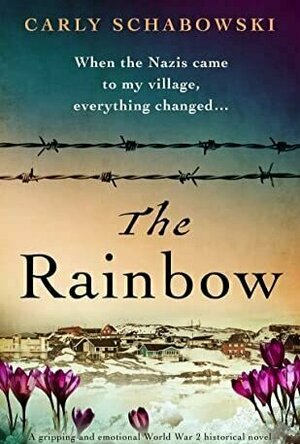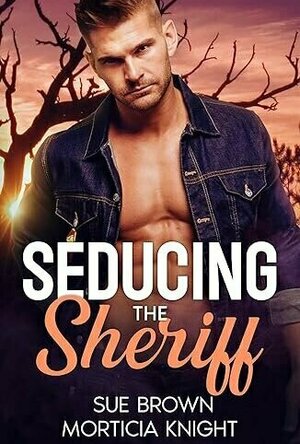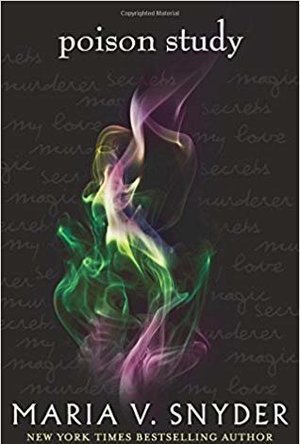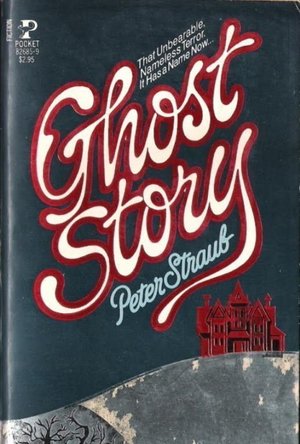
The Rainbow
Book
There, on the dusty floorboards, was a piece of paper, folded neatly. A newspaper article, written...

Seducing the Sheriff (Charming Butte #2)
Book
A shy builder and a rugged sheriff. Can two serial introverts make the terrifying leap from...
Contemporary MM Romance

Tight Quarters (Out of Uniform #6)
Book
Petty Officer Bacon, a navy SEAL and ace sharpshooter, has been on the front lines of more than his...
M_M Military Contemporary Romance

Manchu Princess, Japanese Spy: The Story of Kawashima Yoshiko, the Cross-Dressing Spy Who Commanded Her Own Army
Book
Aisin Gioro Xianyu (1907-1948) was the fourteenth daughter of a Manchu prince and a legendary figure...

The Christian Soldier: The Life of Lt. Col. Bernard William Vann, V.C., M.C. and Bar, Croix De Guerre Avec Palmes
Book
Lieutenant Colonel the Rev Bernard William Vann, VC, MC & Bar, Croix de Guerre avec palme, was one...

Interludes Box Set
Book
Temporary Home Sometimes past demons need to be faced before one can embrace what the future...
Contemporary Erotic Romance Men in Uniform MultiCultural

Be U Salons
Shopping and Health & Fitness
App
Revolutionizing Salons Like Never Before! India's First-Ever App Based Standardized Salon Chain-...
Mandy and G.D. Burkhead (26 KP) rated Poison Study (Study, #1) in Books
May 20, 2018
The first trilogy, comprised of Poison Study, Fire Study, and Magic Study, follows Yelena Zaltana. The second series, also called the Glass series, follows her friend Opal Cowan in Storm Glass, Sea Glass, and Spy Glass. The final trilogy, Shadow Study, Night Study, and Dawn Study, is where things get a bit odd. Maria V. Snyder had thrown in a few short stories/novellas throughout from different characters’ points of view. Perhaps she got bored of just sticking to one POV, or maybe fans wanted more from the other characters, so the third trilogy is from Yelena’s POV in first person and the POV’s of multiple characters (mainly Valek, Leif, and Janco, with a few others popping in from time to time) in third person.
I’m not sure which editor thought it would be a good idea to have POV switch from first person to third person in the same novel, but—yikes—is it jarring. Even with the wonky POV stuff in the third trilogy, these books are amazing and absolutely worth your time to read. Snyder’s world-building is compelling, detailed, and original. The books take place mostly between two pre-industrial countries: Ixia and Sitia. Ixia is a post-revolution country ruled by Commander Ambrose. His personal body guard and assassin is Valek. In the first novel Yelena is in prison for murder and is offered the choice to be the Commander’s food taster in exchange for her life. She agrees, and throughout the first book she and Valek begin to fall in love.
Ixia reminded me a lot of Communist Russia or China. In its attempts to throw away the corrupt government and society that came before, it has also thrown out all culture in the process. The country has been re-divided into districts with numbers instead of names, everyone is forced to wear a uniform, all art and extravagance has been destroyed, people have to have passes to travel between districts, and magic is forbidden. Anyone born with it is killed (or so the reader is led to believe). But Maria V. Snyder does a wonderful job of showing the good with the bad in this totalitarian dictatorship. Everyone has a job and nobody goes hungry, women are now equal to men, and violence and sexual assault are intolerable. This is why Yelena ends up in prison in the first place: she murdered the man that raped her. Now, this is probably my first major gripe with the series. We learn that Commander Ambrose loathes sexual assault and will execute anyone found guilty of it, but apparently killing a rapist in self-defense is also an executable offense. And all of that being said, Ambrose still has his own personal assassin. It all feels a bit contradictory, but again, that’s what I like about this series: it does an excellent job of peeling back the layers of her fictional societies and pointing out that governments and people in power tend to be hypocritical.
Now, the series name (or rather one of them) is Chronicles of Ixia, but honestly, it should have been called Chronicles of Sitia, because that is where most of the story takes place and is by far the more interesting and vibrant country. Sitia is part jungle, part desert, and full of magic. The peoples are divided into multiple clans or tribes that are all unique and compelling. In the second book, Yelena flees to Sitia after the Commander learns she has magic, and there she finds the family she was kidnapped from as a small child. They are part of the Zaltana clan, a group of people that live high in the trees in the jungle. Whenever I read about them, I would have to remind myself that they were not wood elves or dryads, because while there is magic in these books, there are no fantastical creatures: all characters are human or animal.
Another fascinating tribe is the Sandseeds, a group of nomads in the desert known for two major things: breeding super smart horses and having Storyweavers. The Storyweavers are people who have the magical ability to see the future and guide others, but who have to do it really cryptically because reasons (I appreciate that this gets pointed out by an annoyed Yelena multiple times). And of course, the Sandseed horses are fantastic; they choose their rider and able to mentally communicate with magical people. They even have their own horse names for people that they like.
Besides the different clans throughout Sitia, there is also the capitol, the Citadel, which is home to the magic school and the Sitian Council. While very different from Ixia, Sitia is by no means perfect. Its Council epitomizes everything annoying and dysfunctional about a bureaucracy. While the council members are elected and come from every clan in Sitia, they are at best useless and at worst actively impede the main characters.
The magic school is interesting, though the story doesn’t actually spend much time there. I like how magic was done in this series: it usually runs in families, most people with it have control over one or two things (ie. fire, mind-control, telepathy, etc.), but those who have the ability to master more can become Master Magicians after enduring a daunting trial. Magic is bound in people’s blood, so blood magic is a thing and is obviously bad, and magic (and a person’s soul) can be stolen using an intricate and gruesome blood ritual that involves prolonged torture, rape, and then murder.
The power blanket is another interesting concept used in this series. Essentially is resides over the entire world and is the essence of magic, so magicians can pull from it to augment their own magic. However, if they pull too much and lose control, they can flame out, killing themselves and temporarily damaging the blanket in the process. I thought this was a good literary tool to prevent magical characters from being too OP (at least most of the time).
I especially like the romantic relationships in this series. Valek and Yelena are of course the main couple. In the first book they fall in love, in the second book they get separated, and throughout the series they regularly cross paths and save one another. Yelena and Valek are heartmates, and as the series progresses they both have to mature and learn how to trust one another. My biggest complaint about the romance is that all sex scenes are just fade to black, which I personally find a bit boring.
The other major romantic relationship is between Opal and Devlen. This one was a bit awkward. Opal actually goes through a couple of guys first: a stormdancer named Kade and another glassmaker named Ulrick. And I really liked that the author included this. Many people have multiple partners before finding their soulmate, and a woman who does is not a slut. Her relationship with Devlen, however . . . Well, she’s a more forgiving person than me.
You see, it turns out that Devlen is the man who kidnapped Opal a few years earlier and tortured her because he was trying to steal her magic. But he didn’t actually enjoy torturing her and never raped her, which I guess makes it better? Well, he manages to switch bodies with Ulrick and, as Ulrick, tricks Opal into dating him, then, when he’s discovered, kidnaps and tortures her (again) to gain more power. But then she steals his magic, he spends some time in prison, and the combination of the two miraculously turn him into a good guy, claiming that magic is what made him evil in the first place.
I’m going to be honest, I didn’t completely buy his redemption arc even at the end of the third book in the Glass series, but by the ninth book they’re still together and he’s on the good guys’ side, so I guess it was real. And I have definitely watched/read much worse evil asshole to boyfriend stories. At least Devlen genuinely feels guilty for the horrible things he did in the past and attempts to make up for them, and in her defense, Opal has to do a lot of soul-searching before she can find it in her to forgive and trust him, and even more before she can develop romantic feelings for him (that aren’t based on deception, anyway). Also, Ulrick becomes a huge jerk because of his newfound magical abilities, tries to kill Opal, and later gets assassinated by Valek. I appreciate what Maria V. Snyder is trying to do here, which is to teach through her storytelling how good people can become evil, and evil people can redeem themselves and be good. Their romance was uncomfortable to read, but it was supposed to be uncomfortable, because that’s how all parties involved felt.
Now, let’s talk about Commander Ambrose. Towards the end of the first book, Yelena discovers that Ambrose is a female to male trans person. This is revealed to be why Ambrose hates magicians so much: he is afraid that one of them will read his mind and then reveal his secret (which is how Yelena discovers it). After I read the first book, I was really pleased that Snyder did such a good job of depicting a trans person, as that’s really only a small part of his character, and those who know (mainly Valek and Yelena) don’t make a big deal out of it.
And then . . . I really wish that the author would have just left the issue of the Commander being trans alone. Yelena discovers it in the first book, she keeps it to herself because it’s nobody else’s business, the end. But by creating this weird intricate background to explain why Ambrose is trans, Snyder just kind of shoots herself in the foot.
Throughout the rest of the series, I kept hoping for some other LGBTQ+ characters to show up to redeem the blunder with Ambrose. I actually believed that Ari and Janco were a gay couple for the longest time, what with their banter and often being referred to as partners. However, if this was the author’s intention, it was never really explicitly stated, and the partner thing just seems to refer to them being partners in combat and nothing else.
Chris Sawin (602 KP) rated Jojo Rabbit (2019) in Movies
Oct 8, 2019
Based on the 2008 novel Caging Skies by Christine Leunens, Jojo Rabbit is a bonkers twist on one of the most devastating wars and tyrannical madmen in history. On the surface, the film is about a child attempting to become a Nazi because he views HItler as this great leader. He has to attempt to learn to kill, hate Jews, and essentially ignore all of his morals in order to just fit in with an army who believes they are the superior race. The intriguing aspect is that Waititi injects this unexpected tenderness and has concocted a film that has a heartbeat that is entirely too human and too genuine for any sort of project involving the likes of Adolf Hitler.
The Jojo/Hitler dynamic is an incredibly playful one. Hitler only seems to show up when something doesn’t go according to plan for Jojo or he needs some words of encouragement when times get tough. Hitler is a figment of Jojo’s imagination and is completely reactionary to Jojo’s world. If Jojo gets scared, Hitler shows up to remind him why he’s risking his own self comfort. While Waititi is funny and awkwardly charming as Hitler, which is an odd thing to say in itself, don’t overlook Archie Yates. Roman Griffin Davis encapsulates this innocence that even Elsa describes as something along the lines of a ten year old playing dress up with his friends in order to join a club. But Yates often plays off of Davis humorously and amusingly and will likely be forgotten about by some by the time they leave the theater.
Seemingly tapping into his inspiration for Gentlemen Broncos, Sam Rockwell portrays Captain Klenzendorf - a former war veteran who lost an eye and is now forced to teach children how to be soldiers. He has this strange tension on the verge of romance thing going on with his right hand man Finkel (Alfie Allen) and has extravagant taste with intricate ideas for his new uniform. Rockwell and Allen are hilarious and outshine Rebel Wilson’s Fräulein Rahm who never seems to serve much purpose before or after her line about, “having 18 kids for Germany.”
The sweet nature of Jojo Rabbit is expanded upon with the mother/son relationship between Rosie and Jojo. They have completely different viewpoints of a world on the verge of total annihilation where Jojo is slowly nudged into his mother’s mindset. It’s not so much a brainwashing as it is Jojo coming to terms with how he feels about people. Jojo Rabbit defines who we all are on the inside and simply explores the path anyone with an everyday beating heart (not rooted by a tiny mustache) would travel down over the course of their youth.
It’s kind of extraordinary that Jojo Rabbit has been released during a time when Fox Searchlight Pictures is owned by Walt Disney Studios Motion Pictures where a guy directing two of the biggest Thor movies did a side project where he plays Hitler and never had to attempt to keep that a secret. Waititi puts Jojo Betzler through the ringer by blowing him up repeatedly and throwing him down a flight of stairs all while being bullied and pushed around the entire time. But dammit if Jojo Rabbit isn’t one of the most heartfelt and imaginative fairy tales of the year.
This is a film where storytelling, embellishing and elongating false reputations, and glorifying urban myths is the driving force of entertainment. Underneath its layers of SS uniforms, dangerous pistols, and knives you should never leave home without, Jojo Rabbit is a touching film about human compassion with an intimacy that is absolutely unparalleled. Categorized somewhere between Wes Anderson’s Moonrise Kingdom and an imaginative concept that is an obvious homage to Calvin and Hobbes, love feels like it’s the only thing spreading across the world more powerful than war and Jojo Rabbit is more than happy to hype you up and throw you in love’s way without remorse.
Hadley (567 KP) rated Ghost Story in Books
May 14, 2019
Even if it seems so, Wanderley is not the main character of this book, instead, we meet four older gentlemen who have been friends the majority of their lives: John, Lewis, Ricky and Sears. The four have created what they like to call 'the Chowder Society,' where they meet up in suit and tie at one of their houses to tell ghost stories. Sears tells one ghost story that will haunt them the rest of the book about his time as a teacher in a rural town known as Elmira: "Well, one of the most dreadful things in my life happened to me there, or it didn't happen and I imagined it all, but anyhow it scared the pants off me and eventually made it impossible for me to stay on. This is the worst story I know, and I've kept it locked up in my mind for fifty years."
After that story, strange things begin to happen in Milburn; a farmer named Elmer Scales, reports that his sheep have been slaughtered by having their throats slit and completely drained of blood, but there are no footprints nor blood stains where the sheep were killed: " 'Their throats were cut,' Elmer said to his wife. 'What did I tell you? Some crazyman's been out here. And -' his voice rose ' - a crazyman who can fly, because he didn't leave no prints.' "
When the reader finds out that the four life long friends have a dark secret that has seem to come back to haunt them, we witness them being killed off by a supernatural force, one by one. This story brings not only a great cast of characters and amazing story telling, but also twist and turns that are not seen from a mile away, like most paranormal thrillers have today.
The supernatural force readers are introduced to is a shape shifter, who takes on forms from a werewolf to a vampire " When he took off the dark glasses his eyes shone a uniform golden yellow. " But the book is not lacking on ghosts, either : "Then she saw a figure moving around out there and Nettie, who understood more than even her sister credited, fearfully watched it approach the house and barn. She uttered a few choked sounds, but knew that Rea would never hear them. The figure came nearer, hauntingly familiar. Nettie was afraid it was the boy from town Rea talked about - that wild boy in a rage that Rea had named him to police. She trembled, watching the figure come nearer across the field, imagining what life would be like if the boy did anything to Rea; and then squawked in terror and nearly tipped over the wheelchair. The man walking toward the barn was her brother Stringer, wearing the brown shirt he'd had on the day he died: it was covered with blood, just as it had been when they'd put him on the table and wrapped him in blankets, but his arms were whole."
The entire story takes place in the town of Milburn, with a few scenes outside of it, but because of this, there are so many secondary characters introduced that the reader may find themselves back tracking through the book just to remember who all of them are. On top of that, a lot of the characters are so much alike, that description can't even help tell who is who. Even our four main characters have similar descriptions, other than girth, that it takes a couple of chapters for readers to put a face to a name. Only some secondary characters become important enough to remember near the end of the book, this including a teenager named Peter.
'Ghost Story' is among the few paranormal books that can stand on it's own. There are scenes of hallucination that out-do those of the top paranormal writers of today. One of the most memorable scenes is with the character Lewis: "Lewis moved back and forth on the floorboards, willing his friends to return with the farmer's car. He did not want to look at the covered shape on the bed; he went to the window. Through the greasepaper he could see only vague orange light.. He glanced back at the sheet. 'Linda, ' he said miserably. " - the scene quickly changes - "He stood in a metal room, with gray metal walls. One light bulb hung from the ceiling. His wife lay under a sheet on a metal table. Lewis leaned over her body and sobbed. 'I won't bury you in the pond,' he said. 'I'll take you into the rose garden.' He touched his wife's lifeless fingers under the sheet and felt them twitch. He recoiled. "
When the ghost story is finally revealed from the main characters' past, pieces of the puzzle begin to fit together. To not give away too much, here is a portion of that story: " 'She said she was lonely,' Ricky said. 'Said she was sick of this damned town and all the hypocrites in it. She wanted to drink and she wanted to dance, and she didn't care who was shocked. Said this dead little town and all its dead little people could go to hell as far as she was concerned. And if we were men and not little boys, we'd damn the town too.' "
While our main characters are being killed off one by one, the town of Milburn is going through an odd blizzard that seems to put everyone on edge: " People settled down in front of the television and ate pizzas from the freezer and prayed that the power lines would stay up; they avoided one another. If you looked outside and saw your next-door neighbor fighting up his lawn to get to his front door, he looked unearthly, transformed by stress into a wild ragged frontier version of himself: you knew he'd damage anyone who threatened to touch his dwindling store of food. He'd been touched by that savage music you had tried to escape, and if he looked through your Thermopane picture window and saw you his eyes were barely human."
Although 'Ghost Story' was published in 1979, it still has a big impact on the way the paranormal genre is written today. Straub not only makes a convincing story line, but he also makes characters that the reader can actually care about. Even when we find out what has been going on in the small town of Milburn, the reader can still feel a very real threat from the supernatural force within it. 'Ghost Story' is by far the best paranormal thriller I have ever read. I highly recommend this book to anyone who believes that the past can come back to haunt you.
For more reviews by me, please check out my blog at goreandtea.com


